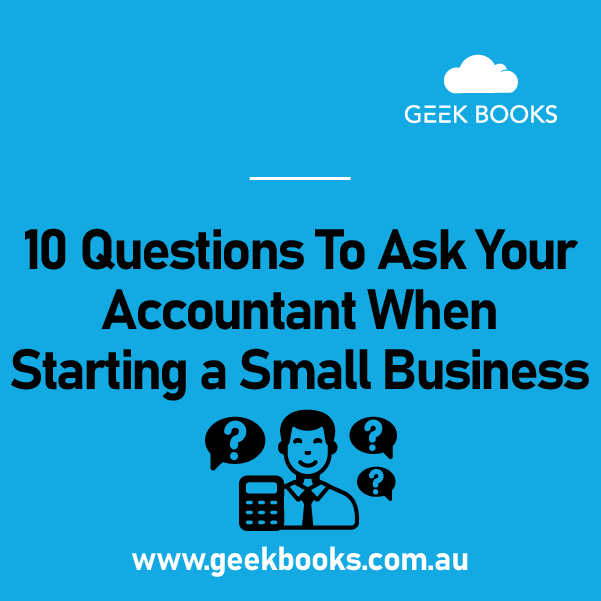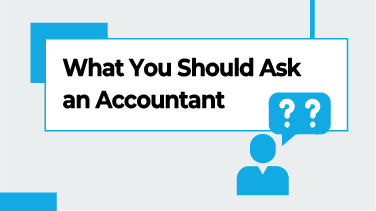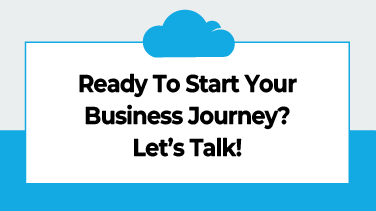Are you a budding entrepreneur fuelled by passion and big ideas?
Starting a small business is exciting, but uncertainty can creep in when it comes to the financial maze of taxes, bookkeeping, and compliance.
An accountant can be your compass, guiding you through financial decisions to set your small business on the path to success.
To harness their expertise effectively, you need to ask the right questions.
What are the ten essential questions to ask your accountant when starting a small business?
Firstly, Why Should You Ask the Experts?
The financial landscape for businesses can be tricky, with complex tax regulations, varying compliance requirements, and unique industry-specific obligations.
This is where experts like accountants are invaluable.
With their knowledge and experience, they can guide you through important decisions and steer you away from costly common pitfalls that catch many new business owners off guard.
Hiring an accountant won’t just simplify your finances; it’ll save you time, money, and stress.
It’s always better to ask questions now and get clear answers than to face surprises later!
What You Should Ask an Accountant
1. How Should I Structure My Business?
The business structure you choose will impact your tax obligations, legal requirements, financial management, and personal liability.
- Sole trader: Operating as an individual, you’re personally responsible for all business debts and obligations.
- Partnership: Two or more people sharing ownership, profits, losses, and responsibilities, like business debts.
- Company: A separate legal entity distinct from its owners. Provides liability protection for personal assets, which can benefit larger businesses or those with higher risks.
- Trust: A trustee holds assets for the benefit of others, known as beneficiaries. Often used to manage family businesses and offer certain tax advantages.
A good accountant can weigh the pros and cons of each structure to recommend one that fits your goals for business success, as well as your risk tolerance to protect your personal assets.
2. How Do I Manage Cash Flow?
Cash flow is the movement of money in and out of your business.
It includes all the cash received from sales and other income (cash inflows) and all the payments made for expenses, inventory, and other costs (cash outflows).
Your business needs positive cash flow—more money coming in than going out—to cover expenses and plan for growth.
An accountant for small businesses can help manage your business’ cash flow by
- Monitoring your income and expenses to give you an accurate view of your cash flow.
- Setting up a tailored budget, allocating funds for essential expenses and planning for future growth.
- Identifying cash flow patterns, including areas where you could cut costs and recurring times when cash might be tight so you can prepare in advance.
- Advising on payment terms to stabilise cash flow, such as negotiating extended terms with suppliers or incentivising faster payments from clients.
3. Will I Need To Register for the Goods and Services Tax (GST)?
You must register for GST if you expect your business to turn over $75,000 annually.
Even if you earn less, registering can offer some benefits, such as claiming GST credits on business expenses, appearing more established to clients, and simplifying the GST process if your business grows and surpasses the threshold.
An accountant can advise you on whether GST registration is beneficial for your business.
They can also assist with the registration process, explain how to charge and report GST correctly, and manage the timing and preparation of Business Activity Statement (BAS) lodgment to keep your business compliant with the Australian Taxation Office’s (ATO) rules.
4. What Are My Tax Obligations?
As a business owner, your tax obligations could include
- Income tax: The tax on your business’ profits.
- GST: If your business is registered for GST, you must collect 10% on most goods and services you sell and pay this to the ATO. You’ll also be able to claim GST credits on business purchases.
- PAYG: If your business’ income reaches a certain level, you may need to pay regular PAYG instalments toward your expected tax liability to spread out your tax payments rather than facing a large lump sum at tax time.
- Other relevant taxes: You may need to pay Fringe Benefits Tax (FBT) if you provide employee benefits or payroll tax if your total wages exceed a certain threshold.
An accountant can help you meet your tax obligations by
- Preparing and lodging your taxes on time to avoid penalties from the ATO.
- Keeping your business compliant with the latest tax laws and regulations.
- Identifying deductions, credits, and other tax-saving opportunities to reduce your taxable income.
5. What Business Expenses Can I Deduct?
Maximising tax deductions to reduce taxable income can significantly impact your business’ bottom line.
Your accountant can identify all eligible deductions, such as
- Office supplies
- Marketing costs
- Business-related vehicle and travel expenses
- Utilities and rent for business premises or a home office
- Legal, consultancy, and accounting fees
- Employee wages and superannuation
- Insurance premiums
- Training and education directly related to running or improving your business
- Depreciation on business assets (machinery, equipment, technology)
6. How Should I Prepare for End-of-Year Tax?
Avoid last-minute tax stress by preparing throughout the year.
An accountant can help you by
- Organising your records (income, expenses, receipts).
- Tracking and reconciling bank accounts and financial records.
- Identifying all eligible deductions.
- Managing GST and BAS submissions.
- Planning for expected tax obligations based on your income throughout the year.
- Advising on tax-effective strategies like pre-paying expenses or purchasing assets to maximise deductions for the current tax year.
7. What Accounting Software Do You Recommend?
The right accounting software can simplify your business’ financial management by
- Automating invoicing and billing.
- Tracking expenses.
- Managing cash flow.
- Preparing information for tax time.
- Generating financial reports (profit and loss statements, balance sheets, cash flow statements).
- Ensuring GST, PAYG, and BAS compliance.
- Syncing with your bank to automatically import bank transactions.
- Handling payroll management.
Your accountant can suggest the best fit for your business, considering features, ease of use, and scalability.
They may recommend one of the popular software options in Australia: MYOB, Xero, or QuickBooks. Then, they can help you get set up.
8. What Records Should I Keep?
Good record-keeping is not just about compliance; it helps you make better business decisions.
Your accountant can provide a checklist like this to keep you organised:
- Sales records
- Expense records
- Inventory records
- Bank statements
- Payroll records
- Tax documents
- Loan and financing documents
- Contracts and agreements with clients, suppliers, and service providers
- Insurance policies
9. What Insurance Will I Need for My Business?
Your business must be protected with the right insurance.
Certain insurance might even be legally required, depending on your industry.
You may need
- Public liability: Covers costs if your business activities injure someone or damage property.
- Professional insurance: Protects against claims of negligence or mistakes in professional services you provide.
- Property insurance: Covers damage or loss to your business property, including buildings, equipment, and stock.
An accountant can tell you what insurance you need and recommend trusted providers.
10. How Can I Keep My Business and Financial Data Secure?
In today’s digital age, data security is more important than ever.
Your accountant can offer advice on how to keep your business and financial data secure.
They may recommend
- Strong password policies and multi-factor authentication (MFA)
- Reliable accounting software with built-in security features
- Encrypted drives or secure, cloud-based data storage
- Regular software updates
- Routine data backups
- Limited personnel access to financial and business data
- Employee training on data security best practices
Ready To Start Your Business Journey? Let’s Talk!
We’ve covered all the questions to ask your accountant when starting a small business to help you get your business off on the right foot.
The experienced accountants at GeekBooks are ready to answer these ten questions and more!
Then, we can help your business with our comprehensive range of services:
- Payroll management
- Accounts receivable and debtor management
- Invoicing services
- BAS preparation
- Superannuation accounting services
The success of your new business awaits! Contact us today by completing this online booking form or calling 02 9158 3591.




